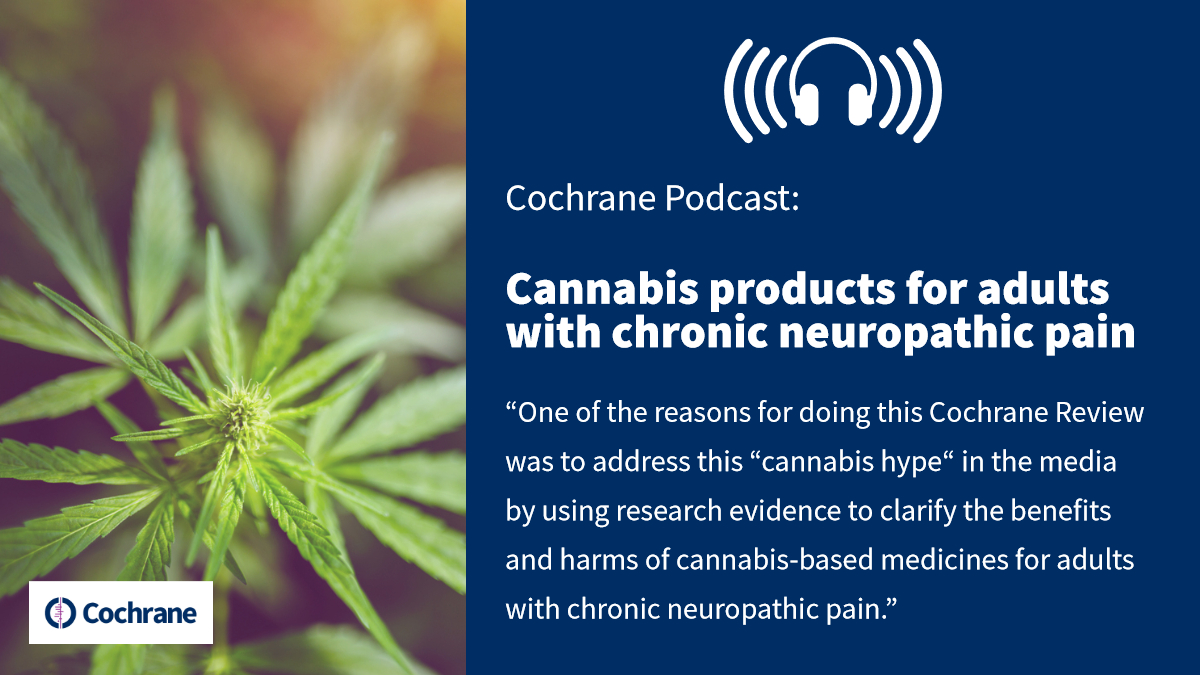
The Cochrane Pain, Palliative and Supportive Care Group is producing a series of reviews on drugs for the treatment of people with neuropathic pain. One of these, published in March 2018, examines the effects of cannabis-based medicines and we asked one of the authors, Martin Mücke from the University Hospital of Bonn in Germany, to outline the findings in this podcast.
Neuropathic pain comes from damaged nerves and several products based on the cannabis plant have been suggested as possible treatments. These include inhaled herbal cannabis, and various sprays or tablets that contain ingredients either obtained directly from the plant or made synthetically. Some people with neuropathic pain have said that cannabis-based products are effective for them, and you have probably heard stories about this in the media.
Therefore, one of the reasons for doing this Cochrane Review was to address this “cannabis hype“ in the media by using research evidence to clarify the benefits and harms of cannabis-based medicines for adults with chronic neuropathic pain.
We searched for randomised trials and found 16 separate studies, with a total of just 1650 patients, and judged the quality of the evidence to be very low to moderate. The studies lasted from 2 to 26 weeks, with ten comparing a mouth spray with a plant-derived combination of tetrahydrocannabinol (THC) and cannabidiol (CBD), two investigating a synthetic cannabinoid called nabilone that mimicks THC, two that tested inhaled herbal cannabis (two studies) and another two of the plant-derived THC, dronabinol. One of the 16 studies compared the cannbis-based medicine with an analgesic, dihydrocodeine, while the other 15 were all comparisons against placebo, a dummy medication made to look and taste like the cannabis-based one.
Overall, we found no difference between people allocated to take cannabis-based medicines or placebo when we looked at the impact on the clinically relevant outcome of an improvement in pain relief of 50% or greater. Those who took cannabis-based medicines did report more frequently than those taking placebo that the global impression of their health was much or very much improved and that they had pain relief of 30% or greater. On the other hand, the cannabis-based medicines group had more dropouts due to side effects, more adverse events of the nervous system and more psychiatric disorders.
In summary, we concluded that the potential benefits of cannabis-based medicines in chronic neuropathic pain were outweighed by their potential harms, although a minority of people with cannabis-based medicines do experience substantial symptom relief without clinically relevant adverse events.

